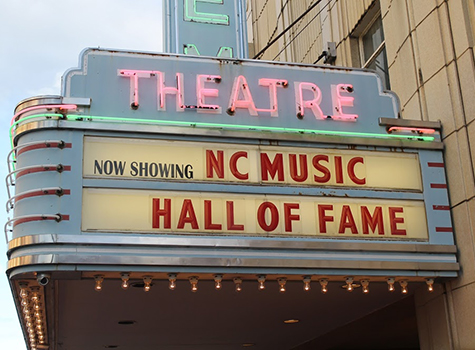
One of the consequences of the lockdown was that my brain imploded. I sought out people I hadn’t thought about in two decades just to argue. Ultimately, the family, the friends, the grocer, the butcher, and the candlestick maker all wanted to kill me. Only, they couldn’t get to me because we are all wearing masks even in the shower now, in case this devil of a germ flies out of the showerhead and grabs us by the throat.
Offering my amateur opinion is not new to me. I have been known to show expertise in everything from construction of suspension bridges to bread baking. Where I got frustrated and ultimately lost in this jumbled jungle of flip-flops is due to a complete lack of science and organization in a world where we all want answers and comfort. Neither came; or are forthcoming, it seems. The NY Times recently reported that one of the casualties of the virus was the peer reviewed medical journal. There are so many retractions flying around in the rush for a cure, that you pretty much start a countdown in your head on when the newest “cure” touted in a study is going to be discredited.
Everyone from journalists to doctors to pig farmers let loose on me with sarcastic barbs about my “expertise.” As days passed, my hair fell off, and my beard grew, and I was getting increasingly hostile about the so-called experts. Starting with the daily comedy briefing encouraging bleach cocktails and malaria drugs, to the top experts in world, who seem to have no clue if this was a virus or a hippopotamus, we are a long ways now from “this is a hoax” to “wash hands, don’t touch your face.” As I write this, the “experts” have the usual conflicting opinions: WHO—no mask needed unless you are nursing a patient. CDC: Wear masks, but okay to have giant rallies, and go to the mall—and forget the hand washing; we did.
Meanwhile, we are walking around with bandanas and old cut-up t-shirts around our faces, not remembering the newest oldest medical opinions: none of this will help because the virus will pass right through the recycled underwear duct-taped to your face. These things, while we free-float through the dark matter of constant misinformation and blundering, is now simply a sign of our compliance level with our community responsibilities. The opinions continue to be split pretty much along political party lines, with state after state feeling the pressure to go to the next phase so we can all experience the joy of shopping for junk at Wal-Mart and Target like a big happy hyper-consumer society again.
But let’s ignore the facts—because we don’t have any—and start with the red ribbon for expertise; our friends in the news media. While the planet is sitting in homes glued to their televisions, the ratings are high, but ad revenue is probably dismal, because how do you approach advertisers now? As I went through the 80s as an editor debating media ethics with colleagues and professors, I was already gun shy about how the media report the news. In the old days, there was also this thing, the paper newspaper, and there were limitations to what the editor could pick for publication. This issue of playing god, what news lives what news dies, was already disturbing. But then came the Pulitzer Prize winning journalist who specialized in quantum physics, and by osmosis became an expert after reporting on the rogue elements in the quantum world.
Today, there are more fellow journalists opining about the virus, the economy, the government, then there are legitimate experts on a panel. In the end, you scratch your head and think, “Gee, I learned nothing from four fools who are being paid to be analysts.” Journalism today consists of heavy sensationalist agendas that have been fine tuned to push your psychological buttons to keep you from switching channels. The louder, the better. Several talk show hosts confessed during the recent riots that showing burning buildings were higher priorities for them then millions of Americans marching peacefully—peace is not news. That is “Truth” now; and it may never have been truth because of editorial bias, but it is definitely worse today.
But getting back to expertise in general, the 20th century was a great time for “expertise” as the licensed professions asserted themselves and, through lots of propaganda and political maneuvering, got to a point where they demanded and commanded a newly found respect. In 1850 or even 1900 for some professions, most lawyers, doctors, accountants, architects still operated on an apprenticeship principle. You were lucky to be selected by a working doctor to learn the ropes and gain from his experience. But as World Wars came, the scientific method got fine tuned, some miracle cures came on board, medicine gained the type of power to actually imprison people who dare encroach on their domain.
Other professions followed suit tightening regulations and ensuring their survival by making their expertise licensed and indisputable. But medicine remains crucial because it’s life and death. And for months, we have been looking to experts to provide us with evidence-based science that may save us—which is not coming. Last week, the pandemic was guaranteed to have a second wave. This week, maybe not. The pandemic may not even exist if testing stops and the media are distracted by the next shiny object. Many states are trying that approach by simply firing their data gathering people, and stopping testing and refusing to report on certain high risk areas like nursing homes. They can make the virus disappear by simply making the numbers disappear.
Me, I’m just online reading a variety of items, and trying to form an opinion. Seems my internet browser credentials are currently about as reliable as the top medical experts in the world. Just don’t arrest me for medical advice, by sending half the cops in masks and the other not—because they are listening to the “Experts.” Facts will be so refreshing just about now.
———-
Ahsen Jillani a former editor and publisher, is originally from Islamabad, Pakistan, and now lives in Mint Hill. He owns Must Media, a PR company focusing on both political and corporate clients.
Posted: Monday, July 20, 2020



